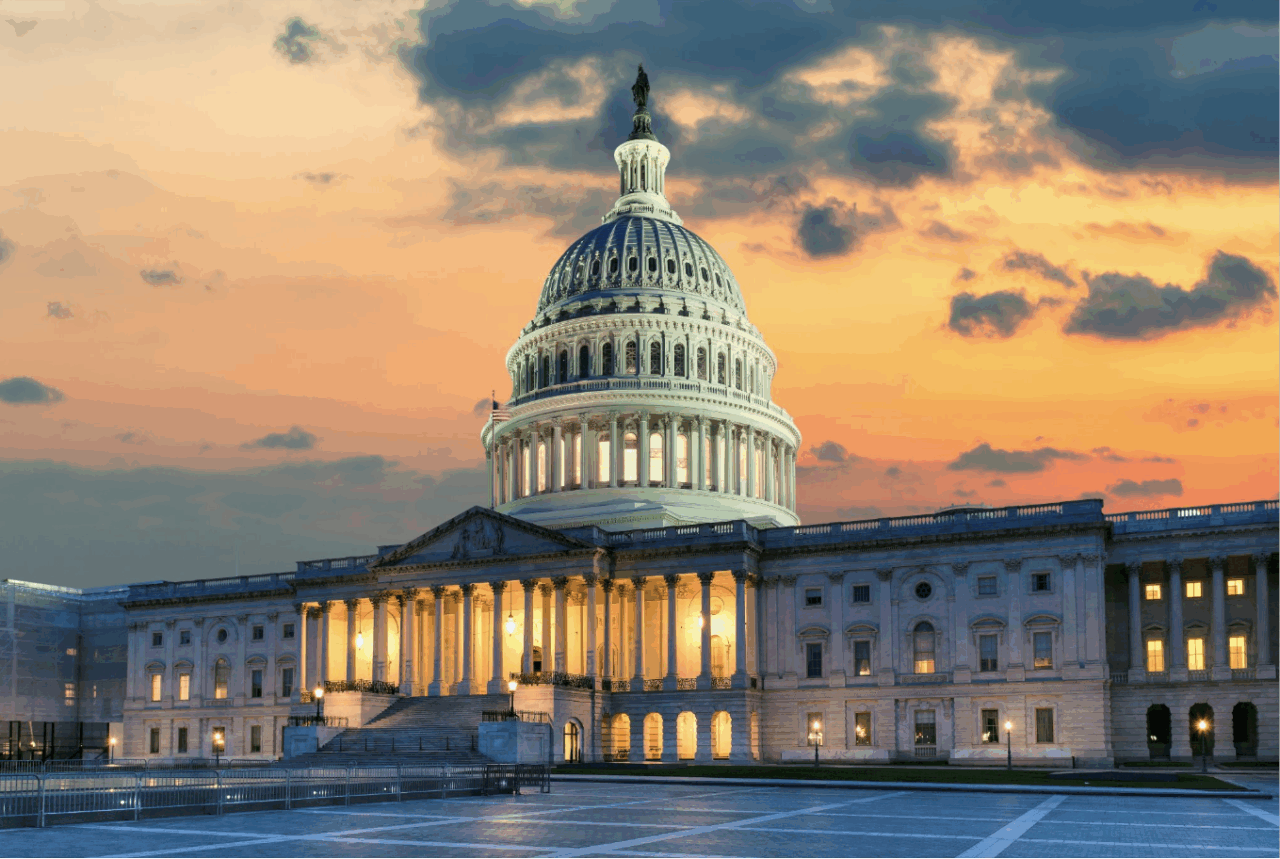Poll: Branding the Republican Party
This Navigator Research report covers perceptions of Project 2025 and Elon Musk, including awareness and favorability of both, as well as the most concerning features of each.
As the Trump administration continues its assault on critical programs Americans rely on, a variety of villains have been identified and blamed for these attacks. Our latest survey aims to answer the question: who or what villain is most resonant?
Project 2025—still relevant?
Views of Project 2025 remain consistently negative with where ratings were pre-election (net -38; 14 percent support – 52 percent oppose), but a third say they don’t know enough to rate it (34 percent), including 44 percent of independents and 47 percent of Republicans compared to 22 percent of Democrats.
Project 2025 is most abhorred by Democrats (net -74; 2 percent favorable – 76 percent unfavorable), specifically Democrats who are more politically engaged (net -78) and Democrats who frequently watch cable news (net -77). Regardless of party affiliation, those who actively seek out news view Project 2025 more negatively (net -43), compared to those who say the news comes to them (net -32). Overall, 62 percent of Americans are familiar enough with Project 2025 to rate it.
However, 70 percent of Americans say they are either unsure how much of Project 2025 has been implemented or say “some” or “not much” or “none if it” has been implemented. Half (49 percent) of Americans say the implementation of Project 2025 has been negative for the country, driven primarily by Democrats (78 percent). A quarter say they don’t know whether it’s been positive or negative (26 percent), including a third of independents (35 percent).
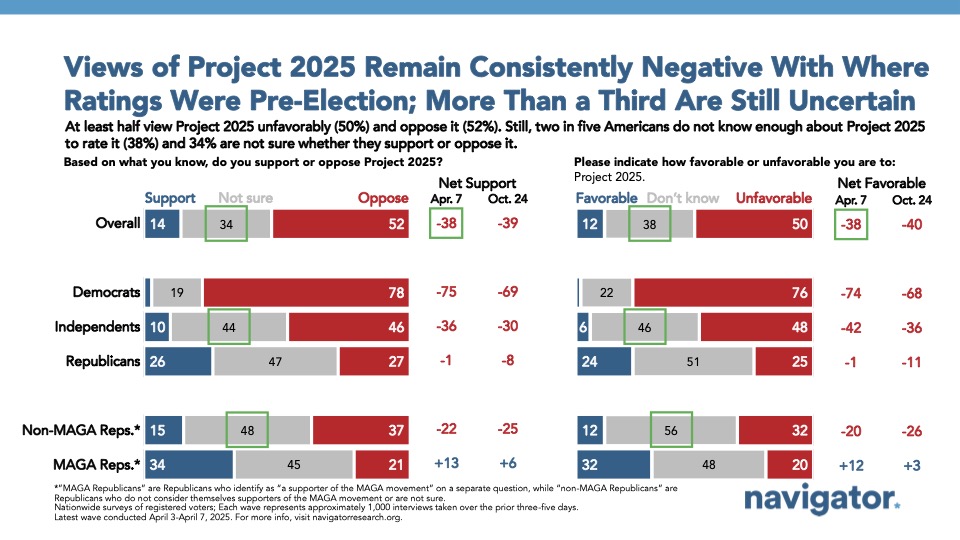
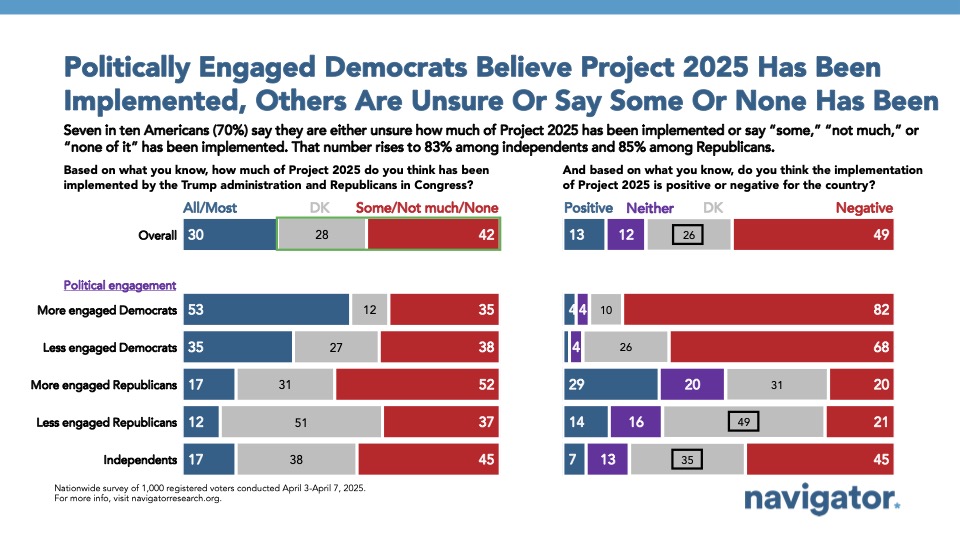
The Musk of it all
Since February, Elon Musk has become increasingly unpopular (from net -10 favorable to net -18), including among 60 percent of independents (net -34). Musk is nearly universally known (94 percent familiar) and viewed unfavorably among both more politically engaged (57 percent unfavorable) and less politically engaged Americans (56 percent unfavorable).
Two thirds (65 percent) of Americans have heard “a lot” about Elon Musk’s involvement in the Trump administration lately, and a majority say it makes them feel more negatively toward Trump in general (53 percent more negative). A majority of independents and one in three non-MAGA Republicans say Musk’s involvement makes them view Trump more negatively (51 percent and 34 percent, respectively).
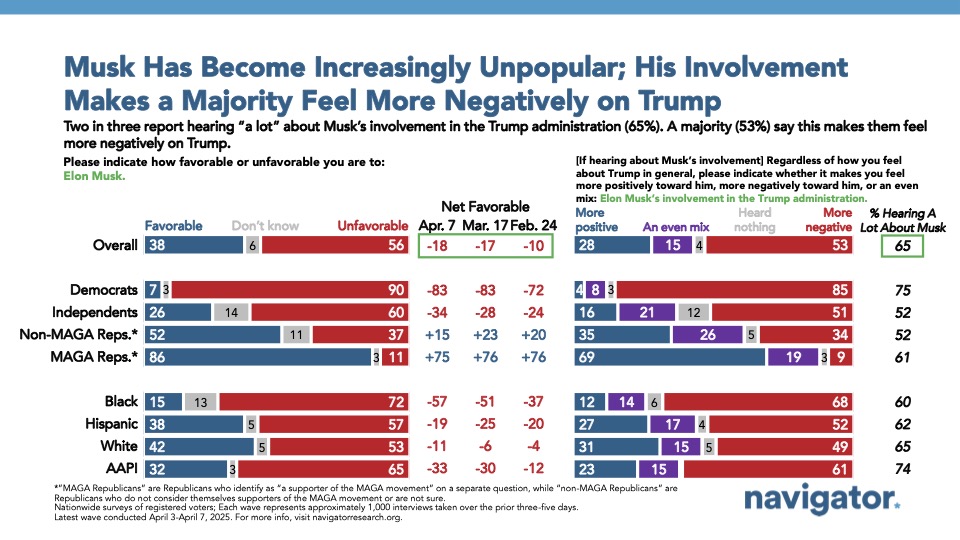
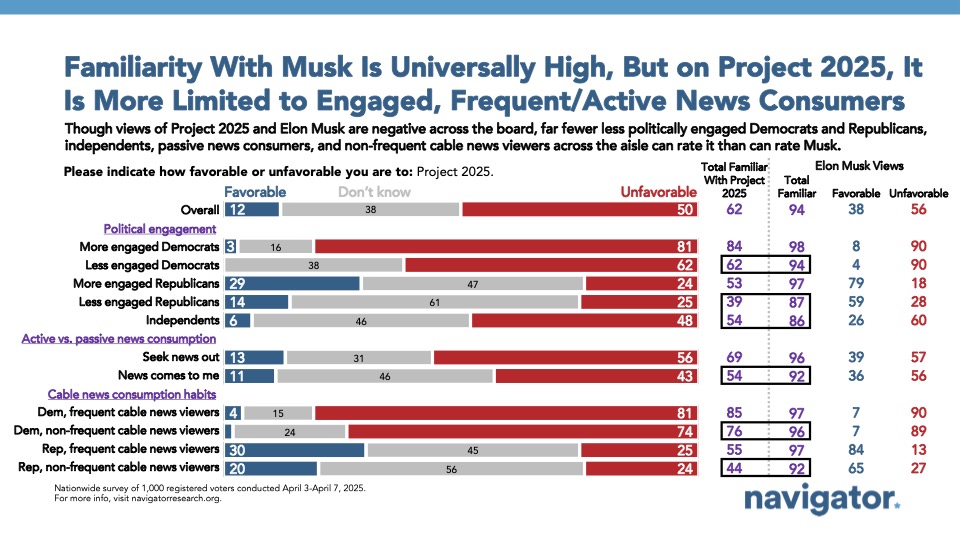
The threat to critical programs
Ultimately, both Musk and Project 2025 are viewed unfavorably by a majority of Americans, but we found a distinction in resonance: when asked which is more concerning that “Elon Musk is being given too much power and is recklessly cutting programs” or that “the Project 2025 agenda is being implemented” Americans find Musk’s power more concerning by 19 points (46 percent Musk – 27 percent Project 2025).
However, more concerning than either Musk or Project 2025, is the specific threats to critical programs Americans rely on. Americans are more concerned that “Republicans are attempting to cut Social Security and Medicaid, eliminate the Department of Education, and ban abortion nationwide” than that “the Project 2025 agenda is being implemented” by 35 points (56 percent Republicans – 21 percent Project 2025). The threats to programs Americans rely on is most concerning overall, for example, when comparing the statements “Elon Musk is being given too much power and is recklessly cutting programs” to “Republicans are attempting to cut Social Security and Medicaid, eliminate the Department of Education, and ban abortion nationwide,” the specific cuts of programs is more concerning (46 percent concerning) than Musk being given too much power and recklessly cutting programs (29 percent concerning).
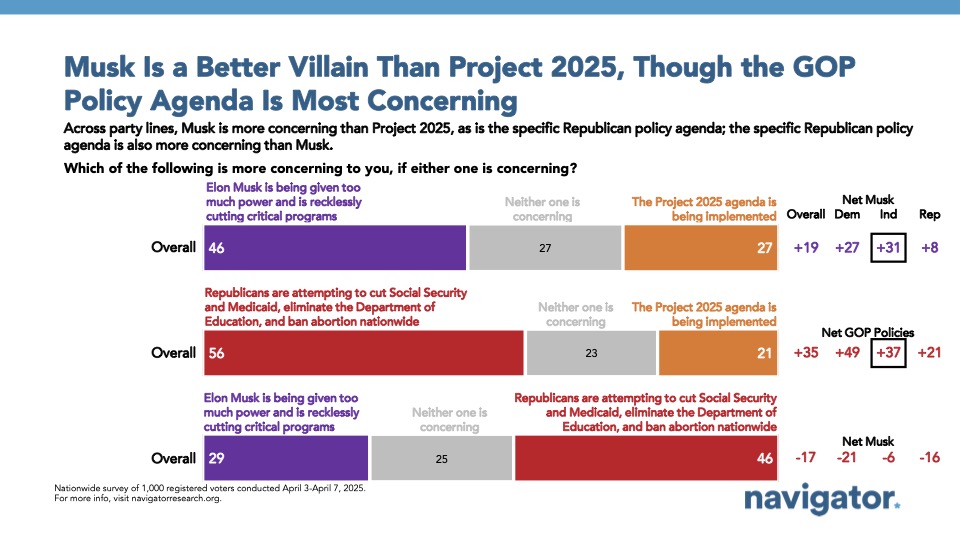
About The Study
Global Strategy Group conducted a public opinion survey among a sample of 1,000 registered voters from April 3-April 7, 2025. 100 additional interviews were conducted among Hispanic voters. 75 additional interviews were conducted among Asian American and Pacific Islander voters. 100 additional interviews were conducted among African American voters. 100 additional interviews were conducted among independent voters. The survey was conducted online, recruiting respondents from an opt-in online panel vendor. Respondents were verified against a voter file and special care was taken to ensure the demographic composition of our sample matched that of the national registered voter population across a variety of demographic variables. The margin of error for the Nationwide surveys of registered voters; Each wave represents approximately 1,000 interviews taken over the prior three-five days. The margin of error for the full sample at the 95 percent level of confidence is +/- 3.1 percentage points. The margin of error for subgroups varies and is higher.

